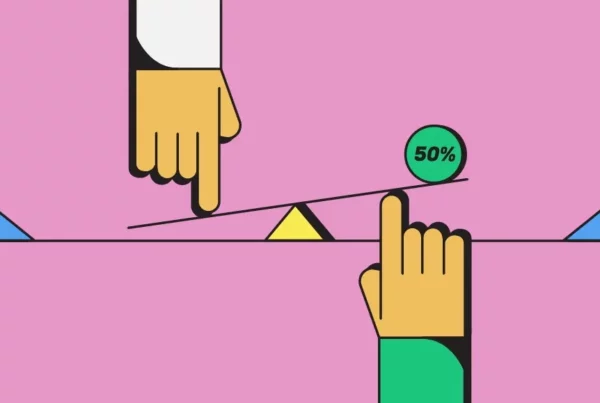News >

Sports Sponsorship and the Auto Industry
With the passion and enthusiasm Latin America has for sports, the link between the auto industry and sports has always been strong. Sponsorships are one of the most common ways in which brands pursue marketing opportunities in sports, whether through sponsorship of a team or event, using professional athletes as spokespeople or tying promotions to large events like the World Cup or Olympic Games. In 2016, sponsorships accounted for 28.8% of the total sports market. In the past a logo on a race car, player or field used to be enough. Nissan’s activations at the Rio Olympics from coinciding the games themselves with the launch of their new Kicks cross-over vehicle, to their fully rebranded Nissan Kicks Hotel, have forever upped the sponsorship game.
While Latin America has had a lower growth rate of 4.9% of sports sponsorship levels around the world from 2011 to 2015 – behind North America at 6.1%, EMEA at 5.3% – recent gains from sponsoring global events, to local soccer teams, are sure to bring more sponsorship activity to the region.
Automotive companies used to focus mainly on brand awareness and recognition while now the emphasis is to create deep levels of engagement between brands and consumers through experiences. With the naturally high level of commitment Latin American’s have with their teams, automotive companies are seeking sponsorships to leverage the deep roots in these sports communities and are creating new and unique experiences to capture their hearts at every step along the way.
More sophisticated and integrated sponsorship opportunities will follow as these are key elements of why Nissan got so much out of sponsoring the games in Rio. However, from the point of view of marketing, this relationship may not be as easy as it appears and success will go to the companies that create deep authentic relationships with their consumers by delivering meaningful experiences.
Also, marketing for the automotive industry in Latin America is quite different from how it’s applied in other categories and regions due to several factors:
•The consumption cycle for cars is long. In Mexico, the average consumer changes cars every 4 years.
•Time spent evaluating which car to buy is considerable. Rational aspects are a key factor in the decision (such as how much will I pay each month? Or how expensive is maintenance?).
•The competitive set for a car brand is reduced as compared to categories like FMCG where more options are available.
So, how can Automotive companies maximize the effectiveness of a sports sponsorship for a car brand in today’s changing Latin America market? Looking at Nissan with the UEFA Champion’s League global sponsorship, the 2016 Olympics sponsorship, and key trends in the industry and region, there’s plenty of examples and lessons to learn.
Nissan is a very successful brand in Mexico (it leads the car industry in Mexico, with 22 SOM). However, it is not as successful in other parts of LATAM, where it is just another competitor. For Mexico, Nissan is a force of nature, with 1 out of every 4 cars sold in the country being a Nissan, and as a brand, alone represents 1% of the entire country’s Gross Domestic Product (the whole car industry contributes 3.5% of GDP…).
The brand needed to reinforce its image of superiority and so, entered into the arena of sports sponsorship supporting the UEFA Champion’s League (UCL), the world’s most renowned football tournament. By doing so, the brand intends to align itself with UCLs premium credentials.
This is a global sponsorship, and is mainly focused on a global perspective. Global activities include showing the UCL logo on the opening of every game, as well as its appearance on communications from Nissan. On a local perspective, Nissan designed several activities surrounding the sponsorship, like “The Goal of the Week” (a series of mentions on media along with analysis from specialists of the most important goals of every match played during UCL season), a series of virtual reality activities in which people interact with football along with the car’s premium features and the Nissan Orchestra (the creation of an entire and fully functional orchestra made out of Nissan car parts to recreate the UCL’s world renowned hymn).
How can we measure success? We cannot precisely measure the direct impact on sales as it is hard to isolate the effect of the sponsor itself. But, we can measure brand health metrics on attributes such as the superiority associated with the brand, innovation, favorability towards the brand. All of which can be measured at a local level. Nissan designed a perception study in which it asks any brand car buyers their perception upon Nissan in these attributes. And then, asked UCL fans the same questions. And the jump is there. Superiority, innovation and favorability increased when comparing UCL fans with “normal” car buyers. The impact on sales will not be immediate, but it will be seen in the long term.
In the 2016 Olympics, Nissan created a fully rebranded hotel, park, experiences on and offline such as the Nissan bungee jump, which created opportunities at every touch point for consumers to interact with their cars, technology and newly launched vehicle. They leveraged their alliances with local charities to build on existing relationships to further connect with their consumers on a very local and relatable level.
Another measure of success, on a global perspective, is the Millward Brown’s Brand Z list of most valued brands. Nissan took over the UCL sponsorship in 2014. Nissan Brand Z value had the largest jump from 2013 to 2014 ($10,186M to $11,104M USD), and has continued to grow ever since*. This alone gives a hint of the effectiveness on the UCL sponsorship by Nissan.
So what are some takeaways of successful auto and sports sponsorships?
•A sports sponsorship can work on two levels: overall brand perception or at a local level to tie specific activities to the sponsorship. Both can contribute to the overall perception of the brand. The deeper the ties and authentic roots, the better the results.
•Strong connections with the brand’s DNA yield ideal sponsor opportunities.
•Well defined KPIs enable the brand and sponsor to focus on what will generate the best return for the brand from overall value to awareness, brand perception to direct sales linked to a promotion.
•It is not only the sponsor or event itself, but all the activities created specifically to surround and leverage it, that prove crucial for unbeatable results.Sports sponsorships create long-term relationships between the sports, teams, players and brands and like all successful relationships, being authentic and creating meaningful experiences is a winning combination.
The auto industry, and those in marketing, advertising, and media have exciting times ahead in the region. With disruption in every aspect from how cars are made, transported, promoted, bought, sold and owned. This is also where the great opportunities lie – sponsorships can extend to creating fleets of branded cars…. Think of ride sharing and car sharing trends and how consumers can share access to branded vehicles for their teams, players, etc.
With longer buying cycles, auto makers are keen to explore new added value services to offer. Sponsorship events in the near future could allow auto makers to showcase the services they can offer in addition to the cars themselves. What would be better than parking your shared car with fellow fans than dropping your car off at the game to be upgraded in some way – returning to find your vehicle also includes the latest game highlights downloaded on your in cars’ entertainment center with the newest players name and number detailed on the back window…the possibilities are endless.
Sources:
*Milward Brown Brand Z rankings 2013-2016 (Nissan moved from 11,104 M (90th place) in 2014, to 11,411 M in 2015 (93rd), to 11,479 M in 2016 (92nd).
Car -buyer Study USA & MX
http://www.sportslatam.com/web/index.php/en/news/television-en/item/284-the-world-s-top-brands-play-soccer-in-latin-america#.WcKti7KGP4a
http://www.sportslatam.com/web/index.php/en/news/technology/item/981-mercedes-benz-to-enter-formula-e-in-season-six#.WcKti7KGP4Z
https://www.atkearney.com/communications-media-technology/article?/a/winning-in-the-business-of-sports
Frost & Sullivan report
http://nissannews.com/en/rio-2016/releases/patroc-nio-da-nissan-aos-jogos-rio-2016-um-sucesso-absoluto


